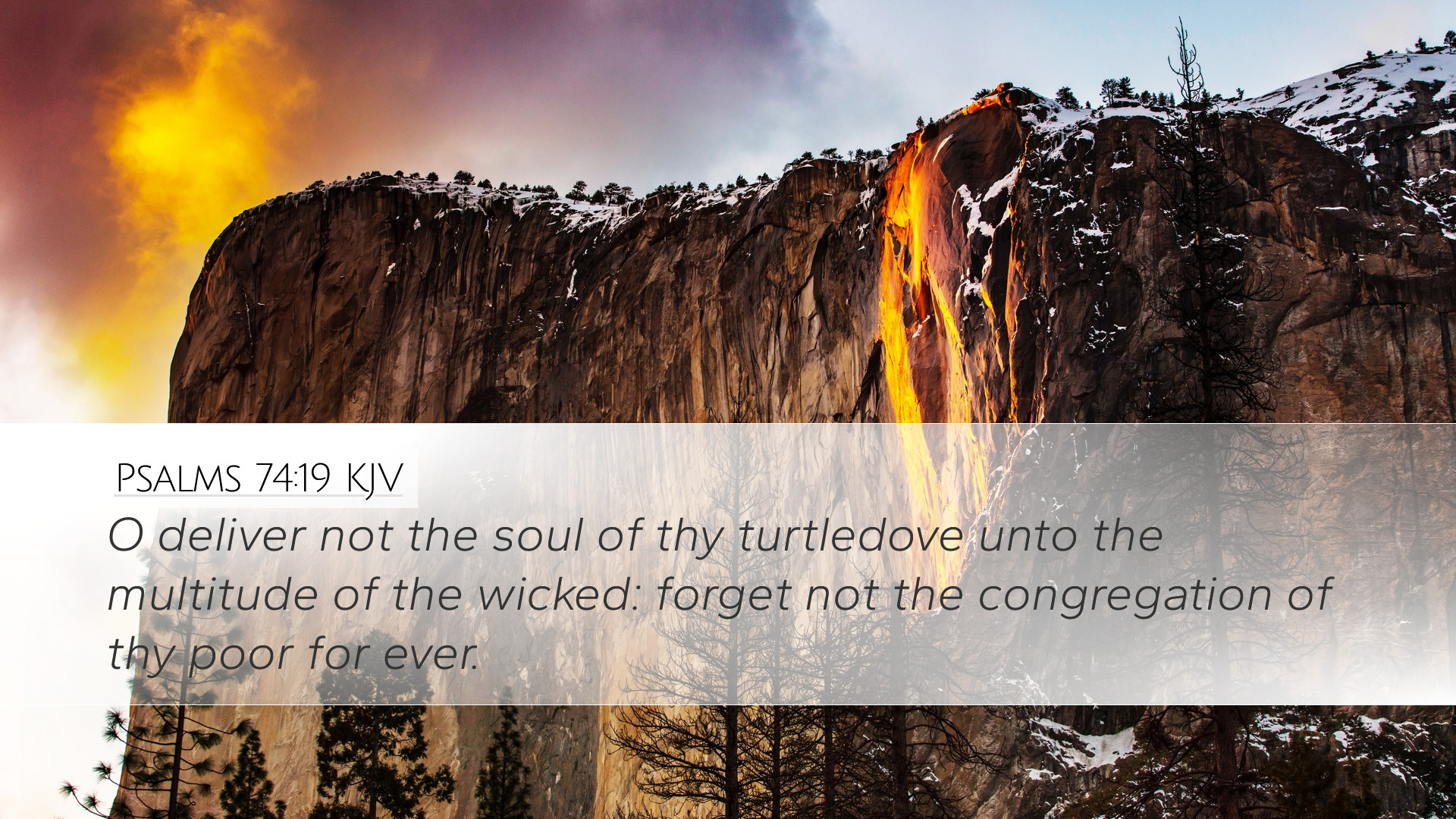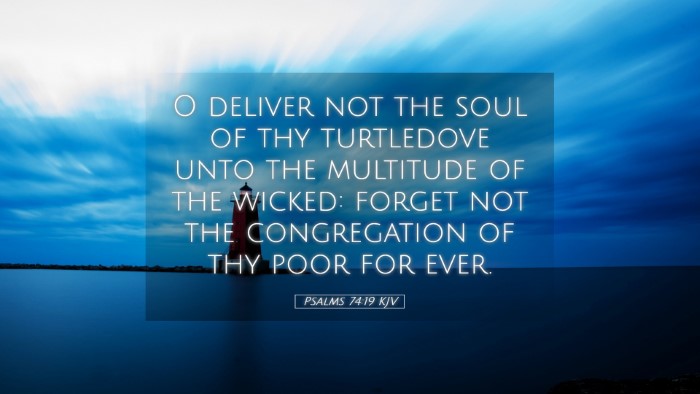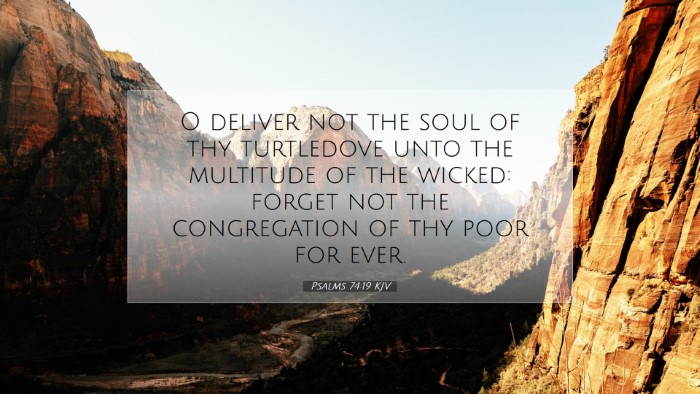Commentary on Psalms 74:19
Verse: “O deliver not the soul of thy turtle-dove unto the multitude of the wicked: forget not the congregation of thy poor for ever.”
Overview
This verse is a poignant appeal to God for deliverance and remembrance. The imagery of the "turtle-dove" signifies vulnerability, innocence, and the need for protection, which resonates deeply within the context of the psalmist's lament. This commentary will explore various theological insights and implications derived from this passage.
Contextual Examination
Psalms 74 is attributed to Asaph, expressing deep sorrow and lament over the destruction of the temple and the suffering of God’s people. This context frames the plea for deliverance and highlights the psalmist's awareness of both personal and communal suffering.
Historical Background
Asaph was a prominent Levite and musician during the reign of King David. His psalms reflect not only personal feelings but also the collective anguish of Israel during times of national crisis. Understanding this historical backdrop can enrich the interpretation of his plea in the current verse.
Thematic Insights
The verse conjoins several themes significant in Biblical theology:
- Divine Protection: The reference to the "turtle-dove" symbolizes those who are weak and defenseless. The psalmist seeks divine intervention to safeguard those who are vulnerable from the hands of the wicked.
- God's Remembrance: The phrase "forget not the congregation of thy poor for ever" emphasizes the importance of divine memory and the assurance that God does not overlook the plight of His people.
- Judgment and Justice: This appeal reflects a deeper longing for justice in the face of oppression. The psalmist seeks assurance that the wicked will not triumph over the righteous.
Commentary Insights
Matthew Henry's Perspective
Matthew Henry points out that the "turtle-dove" metaphor captures the essence of helplessness but also conveys a sense of purity and beauty. He emphasizes that God’s people, like the turtle-dove, are often exposed and vulnerable in a world filled with wickedness. Henry elaborates on the theme of divine care and the necessity for believers to seek refuge in God’s protection.
Albert Barnes' Interpretation
Albert Barnes offers an analysis of the word "soul," suggesting it pertains not just to the individual but to the collective spirit and welfare of the faithful. He reflects on the corporate nature of suffering within Israel and illustrates how this plea is not merely personal; it is intercessory. Barnes also stresses the urgency of the plea, reminding readers that God is aware of the injustice and will intervene in His timing.
Adam Clarke’s Commentary
Adam Clarke notes the significance of remembrance in the covenantal relationship between God and His people. He emphasizes that the psalmist's plea articulates a desire for God to maintain His faithfulness to the covenant by not abandoning His people. Clarke draws parallels with other biblical texts that similarly invoke God's protecting care for the oppressed and the marginalized.
Theological Reflections
This verse prompts several critical theological reflections:
- The Nature of God as Protector: The depiction of God as one who delivers and remembers speaks volumes about His nature as a protector and provider. The faithful are reminded that even in moments of despair, God is attentive to their plight.
- The Role of Community: There is an inherent communal aspect to this verse, which emphasizes collective suffering and intercession. The call to God articulates a community’s vocal plea juxtaposed against the backdrop of their shared experience.
- The Ethical Implications: The verse raises ethical considerations regarding care for the vulnerable. Emulating God's concern for the "turtle-dove" implies a divine mandate for believers to actively engage in acts of justice and compassion.
Conclusion
Psalms 74:19 provides profound insights into God's relationship with His people amidst distress and hardship. The blend of imagery and theological significance invites readers, scholars, and pastors to reflect on the ongoing need for divine justice and protection in a world marked by suffering. As we delve deeper into this psalm, it calls believers to hold on to their faith in God’s ultimate sovereignty and care.


